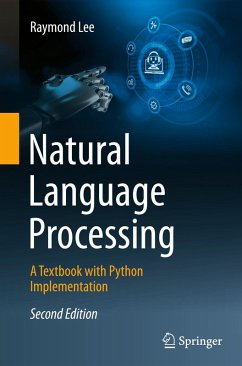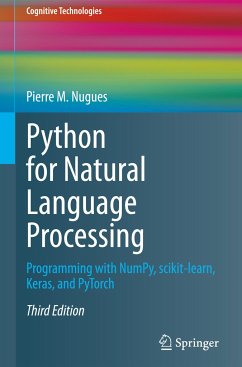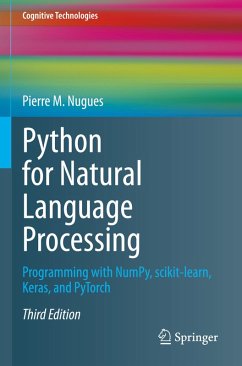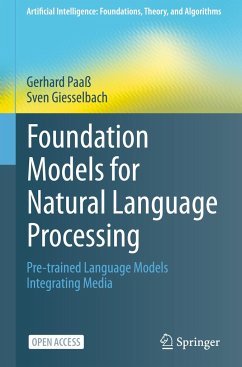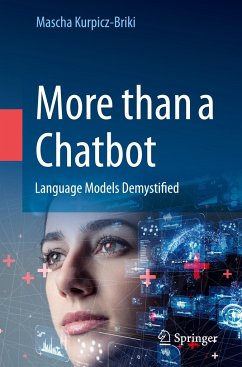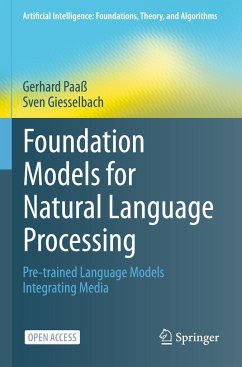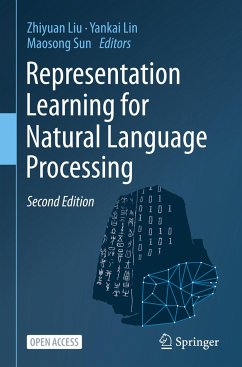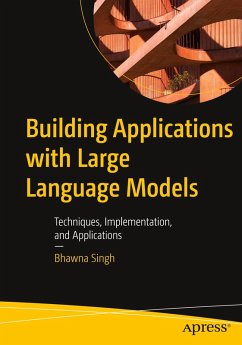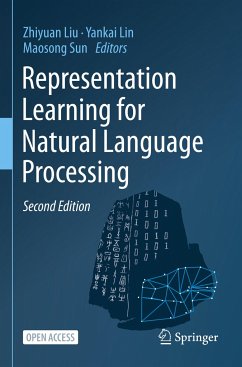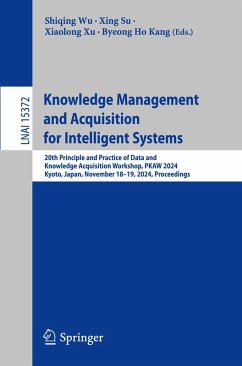
Natural Language Processing
A Textbook with Python Implementation

PAYBACK Punkte
21 °P sammeln!
This textbook presents an up-to-date and comprehensive overview of Natural Language Processing (NLP), from basic concepts to core algorithms and key applications. Further, it contains seven step-by-step NLP workshops (total length: 14 hours) offering hands-on practice with essential Python tools like NLTK, spaCy, TensorFlow Kera, Transformer and BERT.The objective of this book is to provide readers with a fundamental grasp of NLP and its core technologies, and to enable them to build their own NLP applications (e.g. Chatbot systems) using Python-based NLP tools. It is both a textbook and NLP t...
This textbook presents an up-to-date and comprehensive overview of Natural Language Processing (NLP), from basic concepts to core algorithms and key applications. Further, it contains seven step-by-step NLP workshops (total length: 14 hours) offering hands-on practice with essential Python tools like NLTK, spaCy, TensorFlow Kera, Transformer and BERT.
The objective of this book is to provide readers with a fundamental grasp of NLP and its core technologies, and to enable them to build their own NLP applications (e.g. Chatbot systems) using Python-based NLP tools. It is both a textbook and NLP tool-book intended for the following readers: undergraduate students from various disciplines who want to learn NLP; lecturers and tutors who want to teach courses or tutorials for undergraduate/graduate students on NLP and related AI topics; and readers with various backgrounds who want to learn NLP, and more importantly, to build workable NLP applications after completing its 14 hours of Python-based workshops.
The objective of this book is to provide readers with a fundamental grasp of NLP and its core technologies, and to enable them to build their own NLP applications (e.g. Chatbot systems) using Python-based NLP tools. It is both a textbook and NLP tool-book intended for the following readers: undergraduate students from various disciplines who want to learn NLP; lecturers and tutors who want to teach courses or tutorials for undergraduate/graduate students on NLP and related AI topics; and readers with various backgrounds who want to learn NLP, and more importantly, to build workable NLP applications after completing its 14 hours of Python-based workshops.



